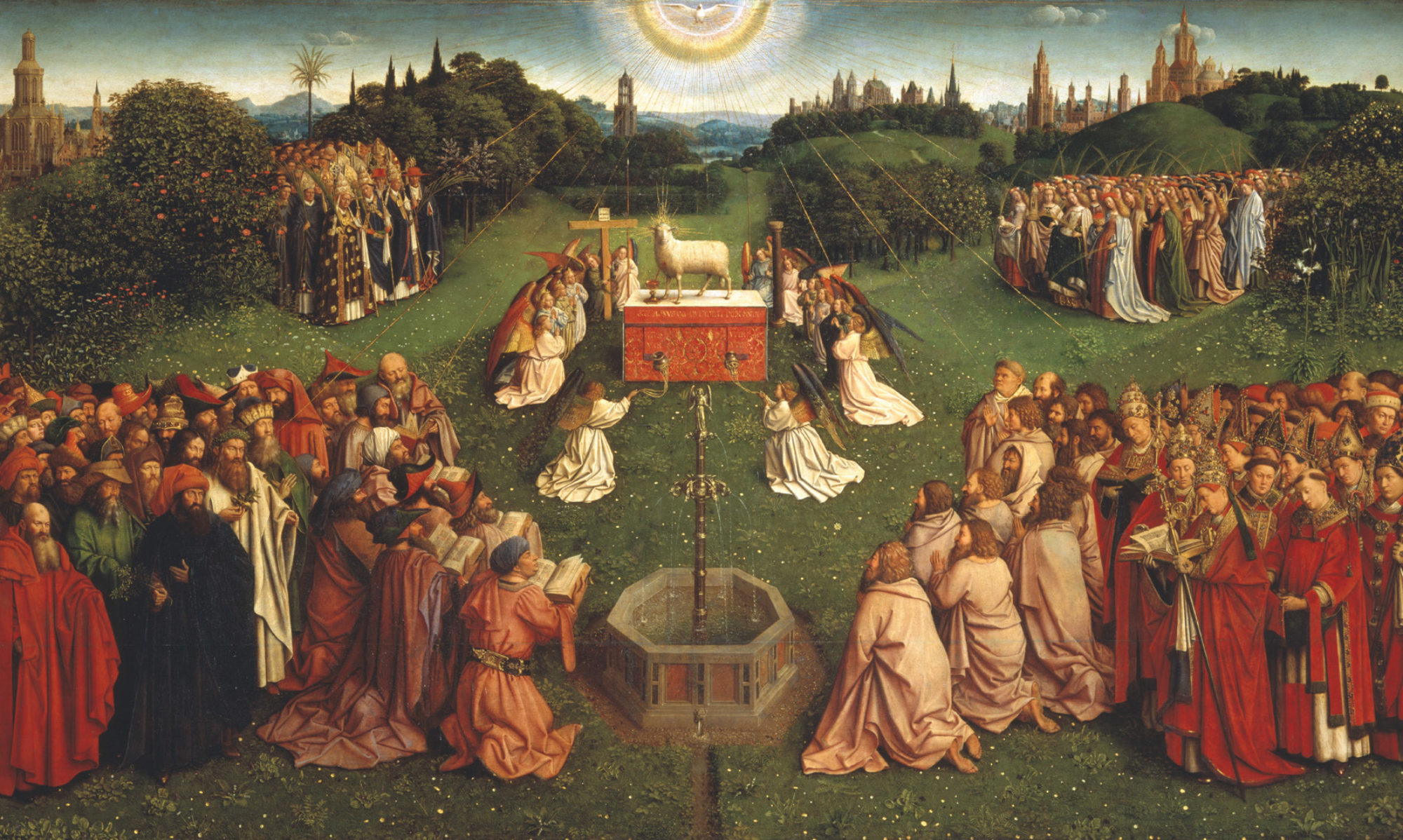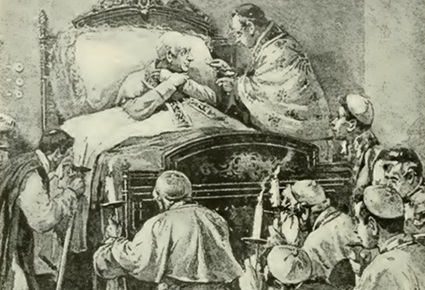Pope Leo XIII (Joachim Pecci) is remembered as one of the illustrious popes of modern times. Reigning for twenty-five years from 1878 to 1903, he presided over the Church during the chaotic years after the loss of the Papal States, served in a diplomatic capacity arbitrating disputes between nations, and is widely praised as the father of the Church’s social teaching, as well as for authoring countless other encyclicals of great import.
Yet Leo XIII was also a talented Latinist, who, in his days as a student at the Roman College in the 1820’s, so excelled at Latin verse that the fifteen-year-old boy was chosen to lead a student delegation to Rome in celebration of Pope Leo XII’s 1825 Jubilee and personally present to him an address in Latin, expressing the thanks of the young pilgrims for the spiritual blessings attached to the Jubilee. During his early years as a cleric, Joachim Pecci spent his free time deciphering antiquarian inscriptions in Rome and composing his own verses in Latin, which were widely praised by his contemporaries for their elegance.
But once Leo was elevated to the episcopcy in 1843 and sent off as nuncio to Belgium, he had little time for composition, as one can imagine—and even less time once he assumed the mantle of St. Peter following the death of Pius IX in 1878, his every waking hour being devoted to the duties of his office. But by the spring of 1903 it had become clear that the light of the aging pope was rapidly dimming. At the behest of his doctors, Leo lightened his schedule; the pontiff spent more time resting, and, in his new-found free time, again began composing Latin verses for leisure.
Two of these poems have been preserved for us in Leo’s 1903 biography by the American historian Richard H. Clarke. These two poems are known as “Leo’s Last Prayer,” and “At Nightfall.” Sadly, Clarke did not record them in their original Latin, merely in English translation, and I have been unable to trace down the Latin originals. It is nevertheless a boon to be able to at least enjoy the verse in English, affording us a glimpse into the thoughts of this great man in his final days.
Leo’s Last Prayer
On the occasion of Pope Leo’s 93rd birthday on March 2, 1903, while receiving the cardinals in audience, he had presented to each a copy of a richly-bound pamphlet reviewing the principal events of his pontificate. Along with this gift he bequeathed to each cardinal copies of a Latin poem he had just composed. Known as “Leo’s Last Prayer,” it was a meditation on his own impending death. Translated into English, it reads:
Leo, now sets thy sun; pale in its dying ray;
Black night succeeds the day.
Black night for thee; wasted thy frame; life’s flood sustains
No more thy shrunken veins.
Death casts his fatal dart; robed for the grave thy bones
Lie under the cold stones.
But thy freed soul escapes her chains and longs in flight
To reach the realms of light.
That is the goal she seeks; thither her journey fares;
Grant, Lord, my anxious prayers,
That with the citizens of heaven, God’s face and light
May ever thrill my sight;
That I may see Thy face, heaven’s queen, whose mother love
Has brought me home above.
To Thee, saved through the tangles of a perilous way,
I lift my grateful lay. (1)

At Nightfall—The Meditation of a Troubled Spirit
By the first week of July of 1903 it was clear that the pope was upon his deathbed. While bed-ridden in the final days of his illness, Pope Leo composed a poem known as “At Nightfall,” subtitled, “The Meditation of a Troubled Spirit.” Written in classical Latin verse, he dictated the poem to his secretary, who wrote it down, preserving it for posterity. “At Nightfall” expressed the pope’s dying sentiments, presented as a soliloquy with his own soul:
Leo, the destined hour! Now must thou hence
And, as thy merits, take the endless way.
What lot awaits thee? Heavenly joy, thy gifts
Which God had freely given, bade thee hope—
But the great Keys! A trust of mighty weight
And borne so long—thou groanest at the thought;
For he who leads in honor all the rest
Must, if he fail, the keener suffering bear.
Amid thy fears, there comes a gentle face,
A gentler voice speaks comfort to the heart:
“Why does fear shake thee? Why, on gazing back
O’er thy long past, should sadness stir thy soul?
“The pitying Christ is here: He gives his grace
To those that seek. Have faith—He beareth all.” (2)
Pope Leo XIII would receive Viaticum on July 5. He lingered, sometimes in states of varying lucidity, until July 20 when he passed to his eternal reward.
These passages and many other details on the life of Pope Leo XIII can be found in Richard H. Clarke’s The Life of His Holiness Pope Leo XIII from Cruachan Hill Press.
(1) Richard H. Clarke, The Life of His Holiness Pope Leo XIII (Cruachan Hill Press: Grass Lake, MI., 2024), 551
(2) Ibid., 551-552
Phillip Campbell, “The Death Verses of Leo XIII,” Unam Sanctam Catholicam, Sept. 6, 2024. Available online at https://unamsantcamcatholicam.com/2024/09/the-death-verses-of-leo-xiii

